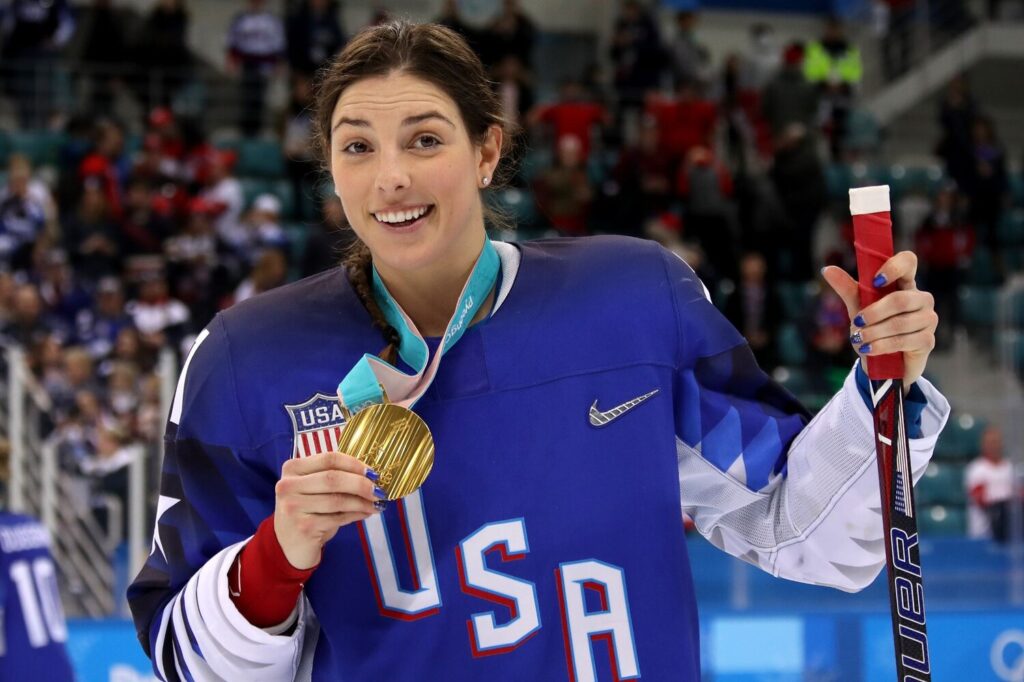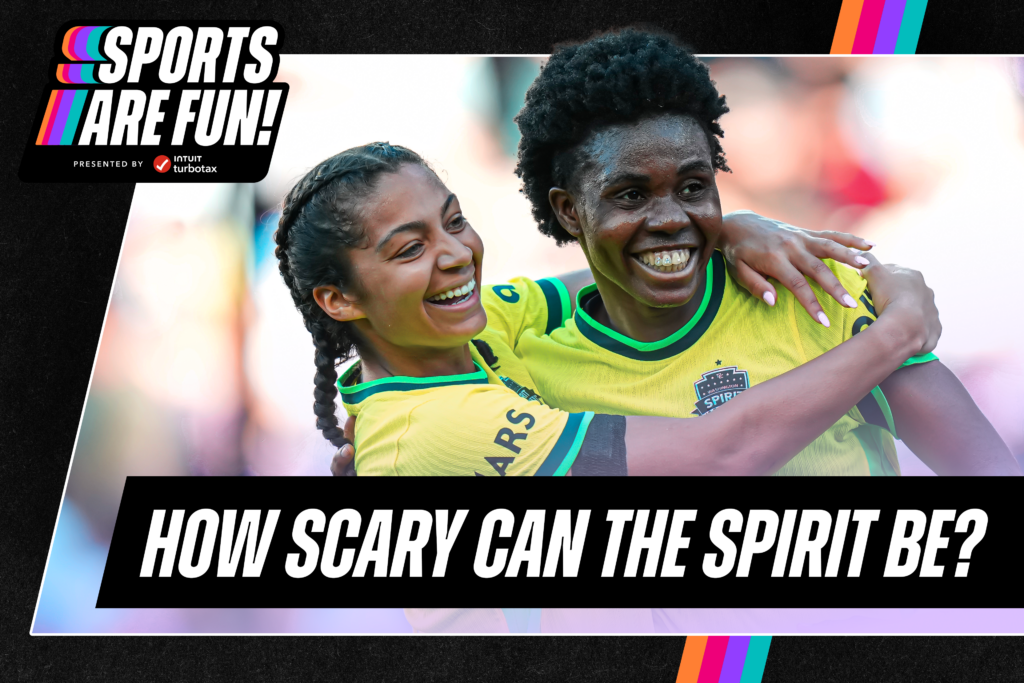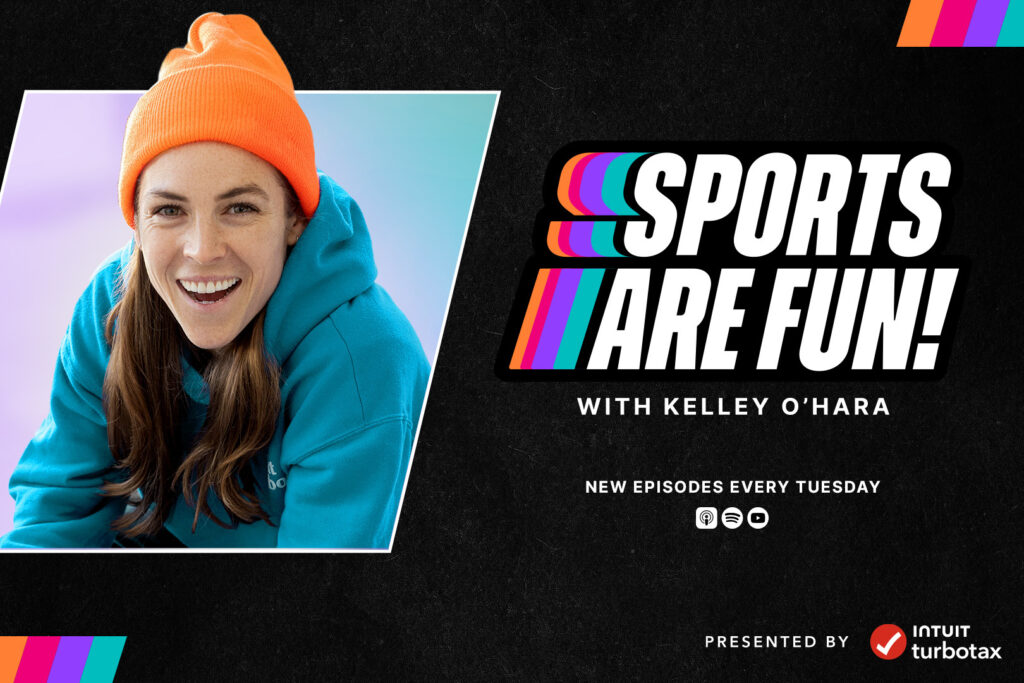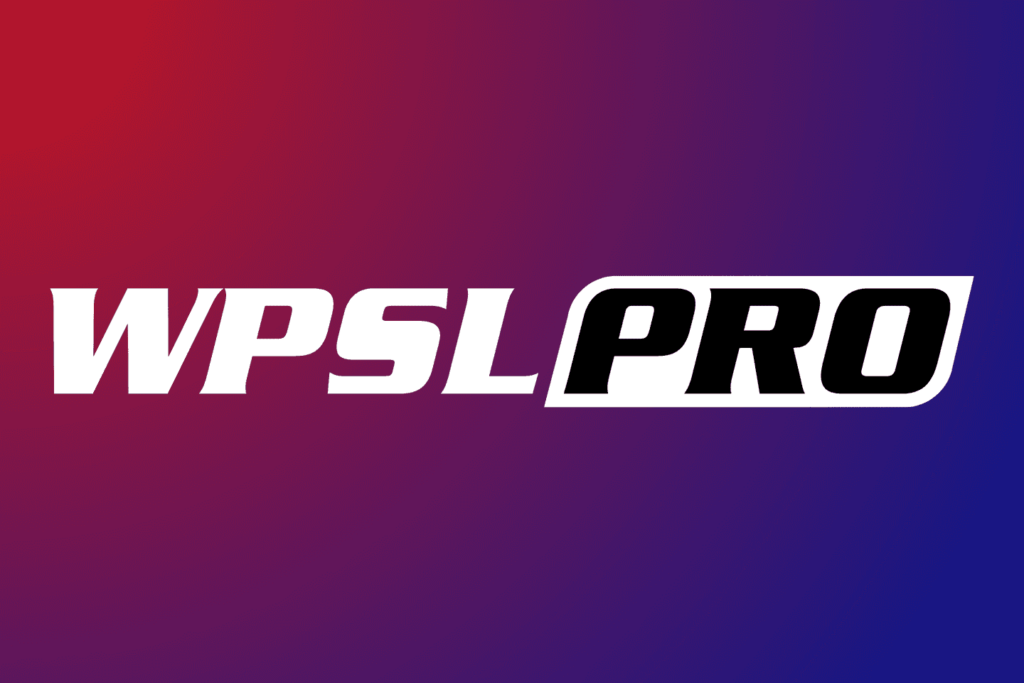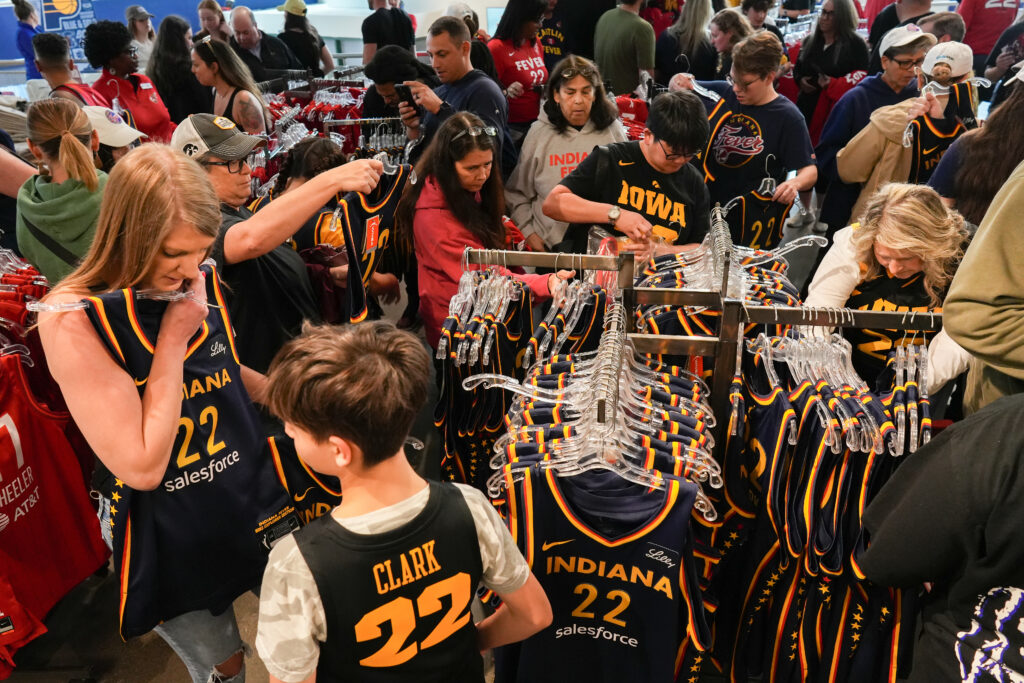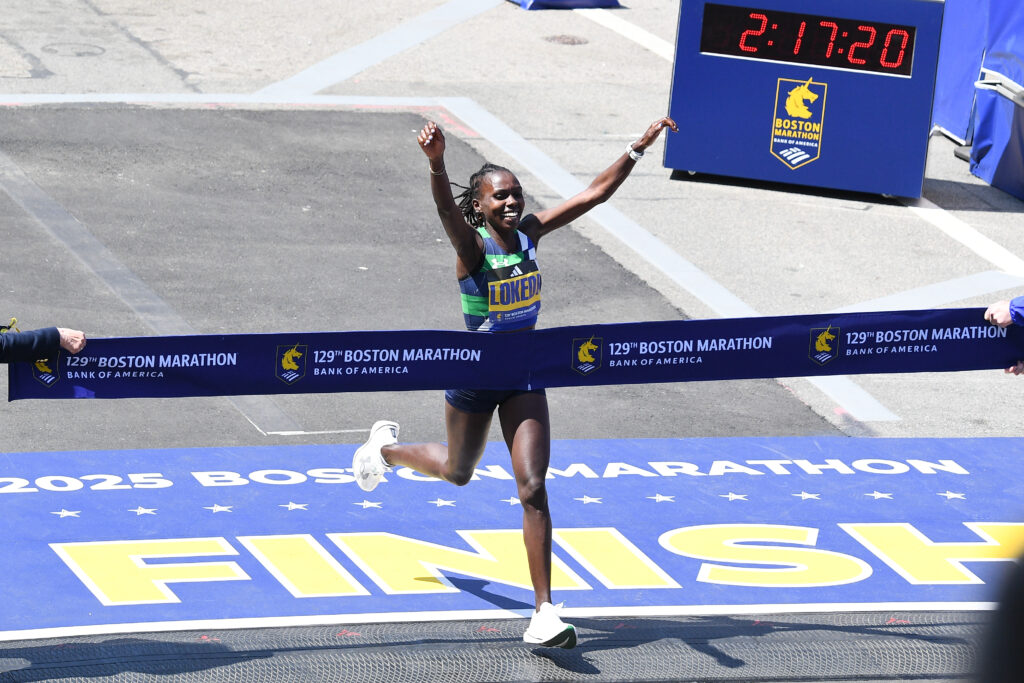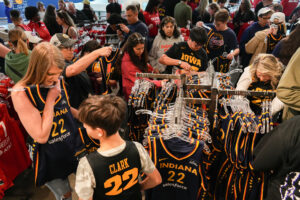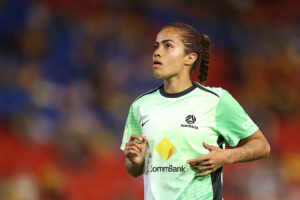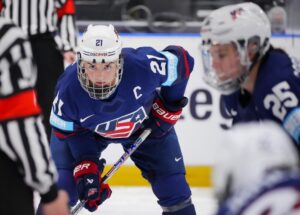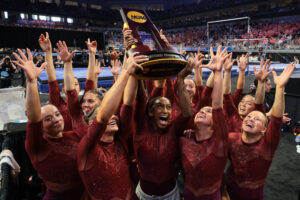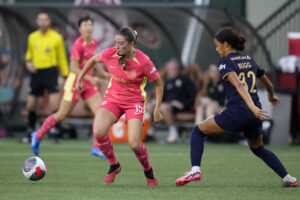Hilary Knight and I are experiencing bad cell service due to winter weather that just won’t quit. We both laugh and roll with it because if this year has taught us anything, it’s to just keep going.
The same is true for Knight and the team she formed to create the Professional Women’s Hockey Players Association, a player-led organization whose goal is to create a single, viable professional women’s hockey league in North America. No matter what obstacles get thrown their way (and there have been plenty), they’ve remained bound and determined to keep going until they change the status quo for their sport.
Knight and I speak days before the start of the PWHPA’s second Dream Gap Tour, which gets underway on Sunday, February 28 at Madison Square Garden in New York City. When Team New Hampshire faces off against Team Minnesota, it will be the first time that women’s professional hockey will be played in the “World’s Most Famous Arena.”
SKATING on, DESPITE the SETBACKS
Hilary Knight had big plans for the PWHPA’s second season. Another round of the Dream Gap Tour had been planned for 2020, with other opportunities cropping up on the horizon. Like other sports, all of that came to a screeching halt as COVID-19 spread across the globe. Despite the setback and the ongoing uncertainty, Knight and her teammates have kept themselves focused on maintaining their fitness as best they can in order to stay prepared.
Balancing her time between her home in Idaho and her training pod in Minnesota, Knight has made the most of her surroundings, running up mountains in her backyard and using her garage as a gym.
“I’ve definitely had to do some home workouts without any equipment,” she says. “Filling my backpacks with firewood to create weight, using my porch as a step up… You kind of just get creative.”
She may be one of the best hockey players in the world, but Knight is just like the rest of us when it comes to Zoom blunders, having accidentally crushed her computer with logs during a virtual team workout. Such is life for an elite athlete in a strange time.
All in all, Knight’s approach to staying in shape for the PWHPA’s upcoming games and the 2022 Beijing Olympics has been to keep calm and get the work done, knowing that she’s far from the only one facing challenges.
“It’s not ideal,” she admits, “and I think you just come to the realization that as hard as it is as a person, everyone else who’s training for the same opportunity is going through the exact same thing.”

A self-described Type A person, Knight has also put her long term goals for the PWHPA at the forefront of her mind in order to contend with a lack of control over what this year will look like.
“Understanding that we have this vision, we have to continue to adjust and adapt on the fly. It’s not always going to go according to plan, especially with the global health crisis. So I think that’s been the biggest thing, trying to be flexible and being okay with being flexible.”
As a leader, Knight is honest about the challenges she faces trying to keep players engaged and connected during this time when they can’t physically be together. At this nascent phase of the PWHPA’s development, enacting a strong culture and fomenting relationships is key.
But as with the other obstacles she’s juggling at the moment, Knight is not inclined to let anything get in the way of what she and more than 100 other players have set out to achieve, previously telling Just Women’s Sports founder and CEO Haley Rosen, “This is for the future of the game. We’re trying to build something that’s bigger and better than what is currently out there. Not only for ourselves but also for the younger girls who dream of playing professional hockey.”
BUILDING A LEAGUE OF THEIR OWN
For anyone of a certain generation, it’s nearly impossible to hear an inspiring hockey story without whispering a subtle “quack, quack, quack, quack.” It’s even harder to watch Hilary Knight on the ice without feeling like you’re witnessing Connie Moreau, all grown up.
But instead of being one of the only girls on the team, the real life hockey phenom is working to build the future she envisioned as a kid, a world where girls can aspire to play in an established, sustainable professional league.
Though she started out on skis at age two, Knight quickly fell in love with ice hockey when her family moved from California to Illinois, and a lack of mountains forced her parents to switch Hilary and her siblings to the local sport.
Knight excelled on skates, and at the age of five — years before the USA women’s team took home gold in the sport’s Olympic debut in Nagano — she announced that she would be an Olympic ice hockey player one day. The only issue was that no professional league existed yet for women.
“I think seeing the guys on TV and watching the NHL, that was how I viewed hockey,” Knight told Kelley O’Hara on the Just Women’s Sports podcast. “And it felt like the Olympics were sort of that pinnacle,”
More than two decades later, with a resume that boasts multiple Olympic medals (including gold from Pyeongchang in 2018), an Isobel Cup Championship, two NCAA titles, All-American credentials, eight World Championships, two World silver medals, and handfuls of additional accolades, the University of Wisconsin graduate isn’t driven by what she’s accomplished in the past.
One of the most recognizable faces in her sport, Knight is motivated by the fire stoked within her from experiencing the harsh reality of trying to make it as a professional hockey player post-college as leagues folded around her and scarce resources made it difficult to make ends meet.
“The reality was far different than what I thought it would be,” Knight told O’Hara. Recounting the start of her professional career, Knight remembers teaching skating lessons to make extra money and living on peanut butter sandwiches and free Dunkin’ Donuts coffee rolls that she would pick up at the end of the day before they were tossed.
Enough eventually became enough, and in 2019, Knight took matters into her own hands.

It’s rare to see camaraderie between US and Canadian hockey players. The two national teams hate each other, Knight admitted to O’Hara, as she recounted on-ice fist-fights between the two programs.
But in an attempt to reshape the professional possibilities for the sport, Knight worked to bring the best athletes from both America and Canada together to start the PWHPA, an alternative organization to the National Women’s Hockey League, which was not meeting every player’s standards for sustainable success.
One of the first recurring opportunities for PWHPA players to showcase their prowess has been the Dream Gap Tour, which aims to galvanize the hockey community around the future of women.
“When we started out, we wanted to provide players resources and opportunities to play,” Knight says. “We don’t get enough with our own national team, and we saw a big need to bridge the gap.”
In addition, Knight notes the need for visibility, saying the tour has ensured that the players remain present and accessible to fans. Visibility is key not only in creating role models for the next generation, but in order to garner the support these athletes need to build the infrastructure necessary to support a competitive playing and developmental environment.
As Knight explains, “it’s all those shared services that we as viewers of professional leagues don’t think about. When you break it down, when you’re watching a player perform, even if it’s a team sport—take one player, there are so many people that go into the success of that player performing on the ice, and then equally there are so many people that go into the success of that team.”
In addition to performance resources, Knight’s goal is for players to have the same opportunity as their male counterparts to make a livable wage and play hockey for a living.
The question now is how.
The fact of the matter is that there is no standard playbook for starting a league from scratch. The PWHPA has enjoyed support from multiple NHL partners, including the New York Rangers, the Chicago Blackhawks, and the Toronto Maple Leaves, who are all lending resources (and arenas) to market the association, the Dream Gap Tour, and future games.
These multi-year partnerships with various clubs now beggars the question of whether the road for women’s hockey starts with more assistance from the NHL.
For Knight, the answer is yes.
“I know there’s a school of thought of ‘oh no, go out and do it on your own.’ But there’s so much to learn and almost not enough time. So if we can have a plugin with these different clubs and continue to have this cross-pollination of shared resources, it’s only going to benefit the game long-term.”
That said, she knows that professional sports leagues are money making ventures, acknowledging that the NHL is its own entity, and they’ve got to make “a good business decision.”
“Personally, I think it would be phenomenal having a woman’s pro league [in partnership with] the NHL,” Knight says. “So I hope it’s in the future, but only time will tell.”
The time is now to bring business and sport together to rally for a sustainable and viable league that showcases the best professional women’s hockey in the world.
— PWHPA (@PWHPA) February 26, 2021
Join us, and put your #StickInTheGround for women’s hockey! pic.twitter.com/axJGLk5KfX
A big part of that future will also hinge on how Knight and other players can grow the game not just for women, but for players of color as well.
Knight is well aware that hockey is a majority-white sport, and she understands the importance of changing that precedent.
“Our entire mission is ‘if she can see it, she can be it,’ and coming from the gender side of things, we saw how important it was for a young girl to be able to see this awesome female skating,” she says. “It’s the same thing with BIPOC players. If we continue to deliver a white player on the ice… then hockey is not going to be for everyone.”
While she knows that solving racial inequities in her sport will not happen overnight, as a leader striving for change, Knight acknowledged that “we play a big role in being able to facilitate bringing hockey to everyone and making it more accessible and making it more diverse.”
“It’s definitely something that’s on the forefront of people’s minds and a conversation that we’ve been having for many, many months.”
ANOTHER SHOT AT GOLD
When the Dream Gap Tour concludes later this year, it’s all eyes on Beijing for Team USA.
Knight is excited at the prospect of bringing home another gold in 2022, but understandably has questions about what the next year of training looks like for her and other Olympic hopefuls due to the new reality created by COVID-19. Though she teeters between feeling underprepared and acknowledging that everyone is being dealt the same cards right now, she’s trying not to over analyze the situation.
“I think it’s a balance of the two extremes and understanding that when the time comes, whoever’s on the team is going to be ready for that opportunity.”
Typically, the team gathers for a residency program with players congregating in a designated location to train as a unit for six months. Having staged an October training camp with zero positive cases, Knight speculates that they’ll still be able to conduct residency training, but with different protocols than before, noting that their success this past fall “shows that the players are really serious about the opportunities when we do come together.”
So if all goes according to plan, Team USA will be able to get together when the time comes. But with the recent retirements of twins Jocelyne Lamoureux-Davidson and Monique Lamoureux-Morando, as well as captain Meghan Duggan, this will be a different team than the one that made history in 2018, upending Canada for the first time in 20 years and winning Olympic gold.
Thinking about the inevitable changing of the guard, Knight shares that while it’s bittersweet to think about heading to the Olympics without players that so many on Team USA grew up watching or playing alongside, the team’s drive transcends generations.
“It’s part of the culture that we’ve developed, and whether it’s your first Olympic games or your fourth, you just have to be ready to go and do whatever’s necessary to put the team in a winning position.”
CHANGING THE GAME FOR GOOD
I could talk to Knight ad nauseam about the intricacies of building a league, her steadfast dedication to setting high expectations, and not settling for less than what she feels female professional hockey players deserve. As our conversation winds down, I ask her what the golden ticket is.
Like a true business maven, Knight doesn’t skip a beat, telling me that the biggest need is for continued corporate investment, which she says will drive visibility.
“When you have these big brands that are hopping on board, people are paying more attention, and they’re taking what you’re doing seriously.”
The upcoming second run of the Dream Gap Tour, sponsored by Secret, is a proof point that Knight’s vision is beginning to take root.
“We need more players in our space and that will come. I think it just takes one, and then all of a sudden more companies want to be involved with what we have going on. And I think the sport in general is in a really good spot to continue to land these partnerships and sponsorships.”
And if there’s one thing Knight wants players, fans, and those in positions of power to know? It’s that “our group is so powerful because we’ve got the best players in North America, and we’re trying to navigate the future for the next generation.”
—
The Dream Gap Tour sponsored by Secret kicks off live from Madison Square Garden on Sunday, February 28 at 7 p.m. ET airing on NHL Network and Sportsnet 360. The tour continues from Chicago on Saturday, March 6 at 2 p.m. CT on NBC Sports and Sunday, March 7 at 10:30 a.m. CT on CBC Sports.
